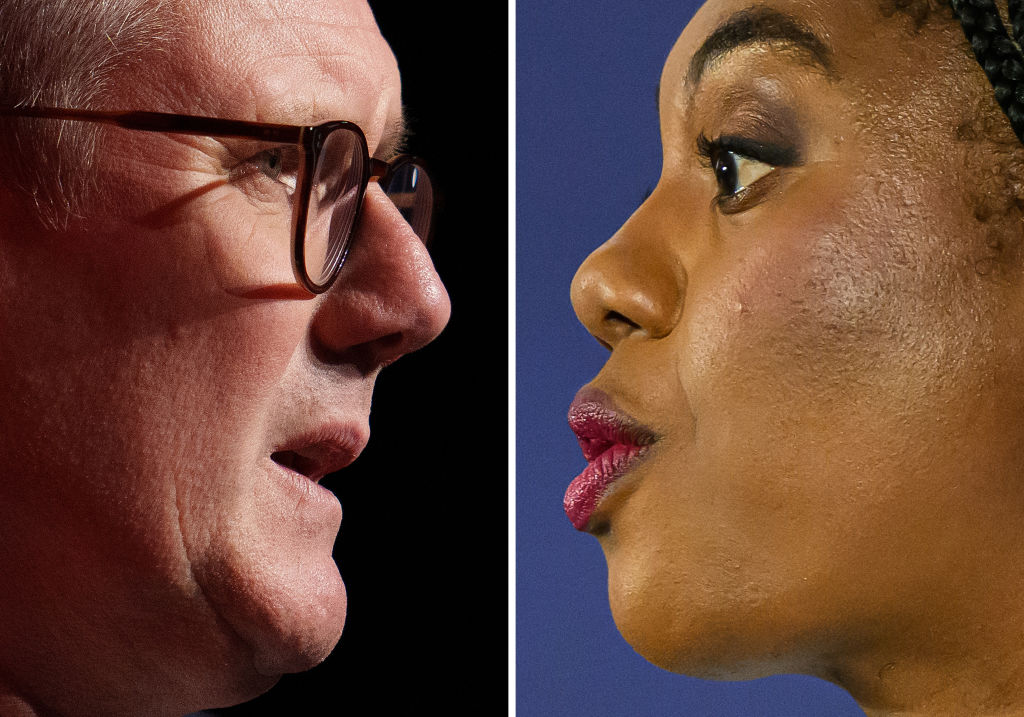It’s been an eventful year in British politics, with a snap general election and multiple leadership contests keeping political journalists across the country busy. And how have political party leaders fared? With the help of the Spectator’s data hub, Mr S has examined which party leaders, both north and south of the border, have had the best (and worst) 2024.
At the start of the year, hapless Humza Yousaf was forced to step down as First Minister after he rather abruptly ended his government’s coalition agreement with Patrick Harvie’s barmy army. The SNP establishment became rather concerned about the prospect of yet another leadership race – given just how unedifying the previous year’s had been – and negative briefings about possible contenders began in earnest. Kate Forbes looked as though she might stand for the top job and, thanks to the SNP’s rather odd constitution, a nationalist activist even attempted to run for the party leadership. In the end, however, it was John Swinney who took on the mantle – for the second time.
While Scotland isn’t particularly enthused by the SNP’s latest leader – who became First Minister in May this year – Swinney’s ratings picked up over November and December, to an overall rating of -7 points, according to Norstat polling. The slight boost in popularity correlates with his party’s announcement that the two child benefit cap would be scrapped north of the border by 2026, while the winter fuel payment is to be made universal for all Scottish pensioners in 2025/26. Might the Nats actually follow through on these promises rather than blame Westminster for once? Watch this space…
Meanwhile Scottish Labour Anas Sarwar has seen his overall ratings drop, from a post-election high of -8 points overall to -17 in November, as his UK party stumbled its way through the second half of the year. Sarwar's lot will be rather concerned about the gap between their leader and Swinney as the 2026 Holyrood election looms on the horizon, with many in the Scottish group rather frustrated with the negative reception Sir Keir Starmer's army has received since winning the July poll. New Scottish Tory leader Russell Findlay hasn't had much time to endear himself to Scottish voters since he won the leadership contest in September – though he's seen a small boost of 3 points overall already, which is more than can be said for his UK counterpart.
According to More in Common polling from 11 January to 10 December, Kemi Badenoch is certainly more popular than her predecessor Rishi Sunak when he left the top job, by quite a margin. Yet despite only being Tory leader for less than two months, after Robert Jenrick was pipped to the post, Badenoch has seen her overall ratings steadily decrease – from -3 points overall in November to -9 the following month. Whether her public attack on Reform will have further affected her score remains to be seen…
On the subject of Reform, Nigel Farage seems to be the only UK party leader who has seen a significant uptick in his net ratings. The ex-Ukip politician's popularity score has jumped up by six points between November and December, and improved overall by a point since the July election. Alright for some, eh?
Sir Keir will no doubt be rather envious of Farage's good fortune – with the PM's fall in popularity really quite striking. Starmer has nosedived from a post-election high of +11 points to have the lowest overall rating of all mainstream UK party leaders at -35. Crikey. He may have won the election, but Sir Keir looks to be fast losing the support of the British people. Will 2025 deal him a better hand? Stay tuned…
What might 2025 bring for each of the parties? James Heale speaks to Katy Balls and Patrick Maguire on the latest Coffee House Shots podcast:







Comments